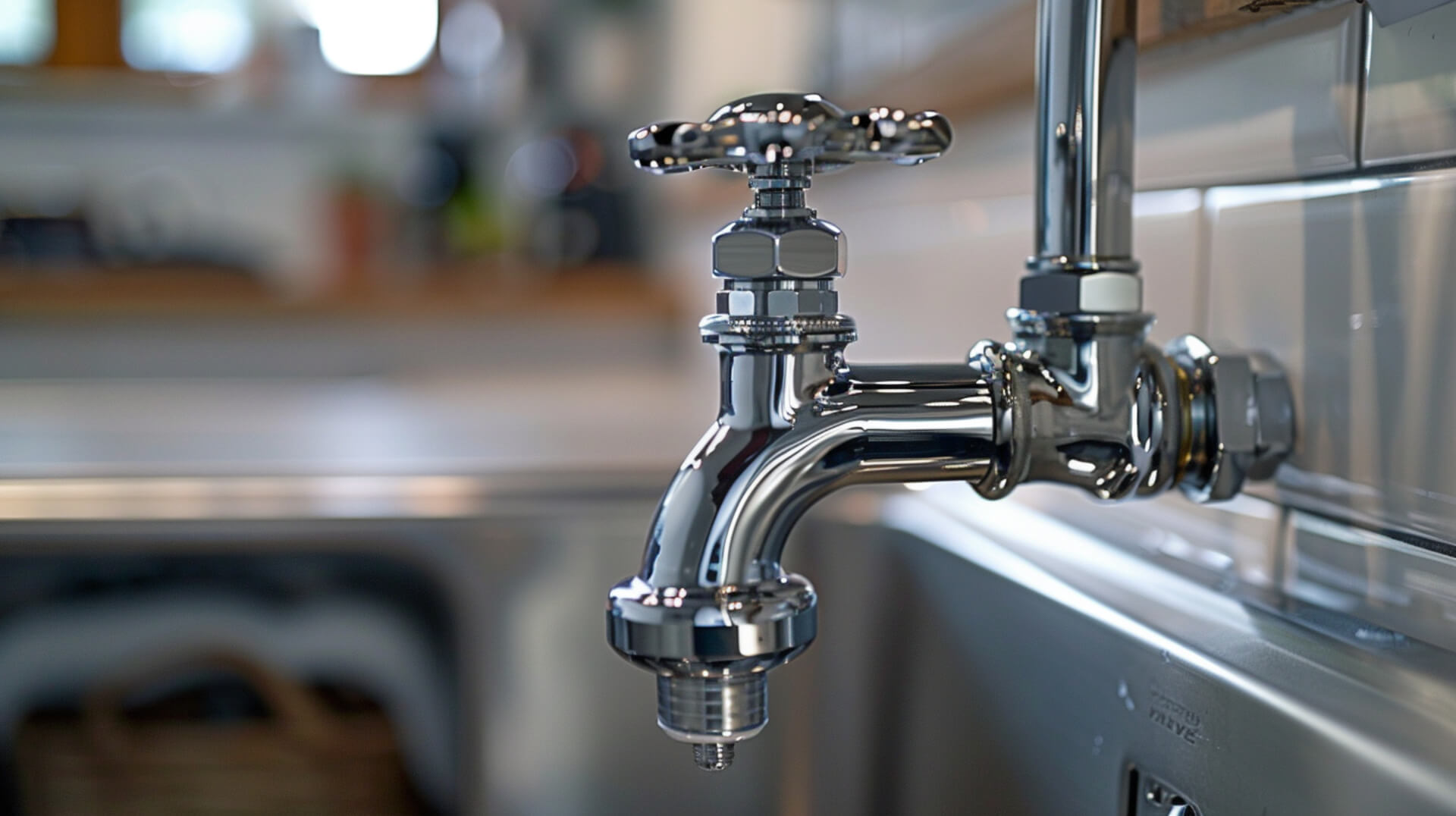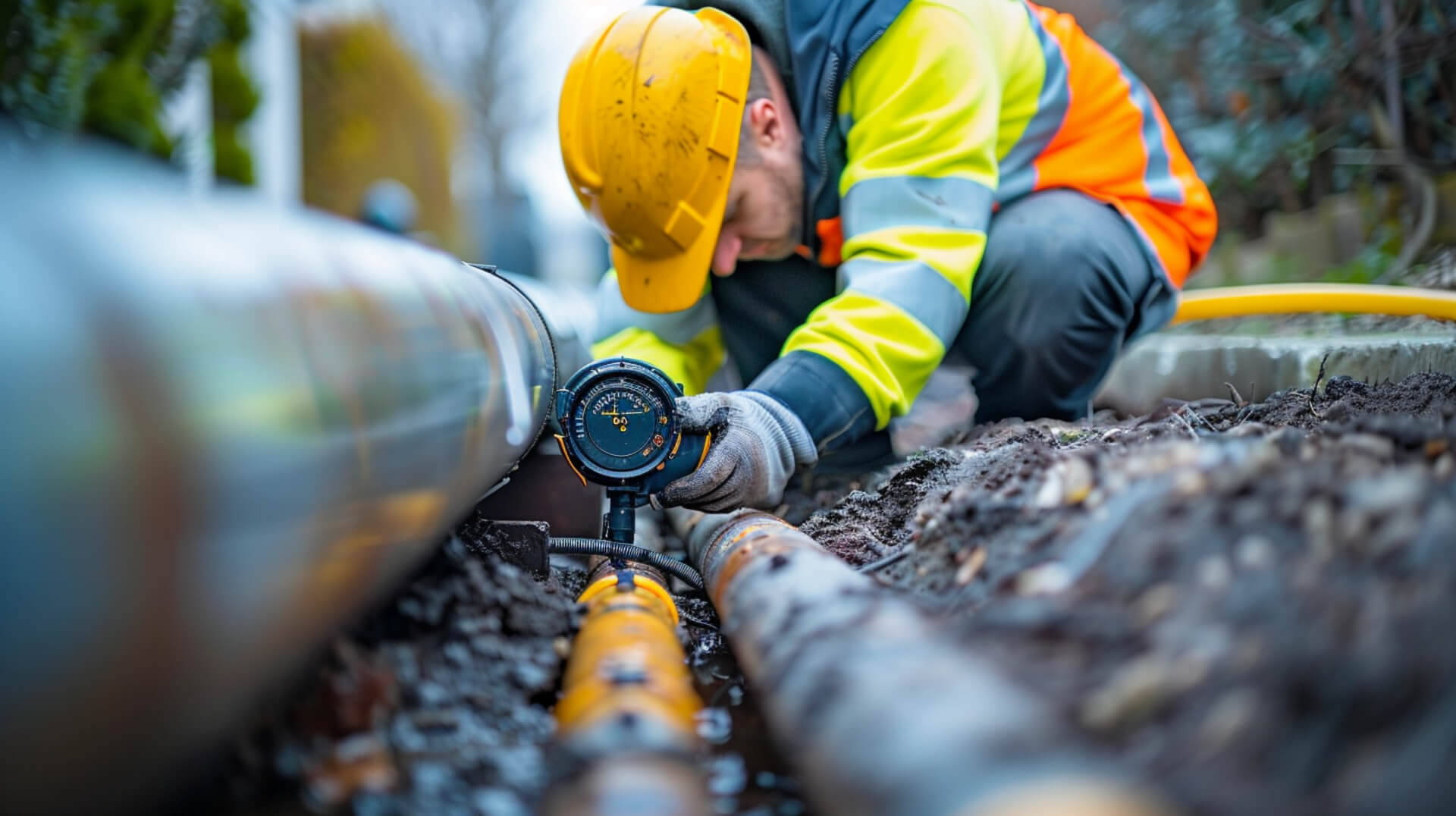 What Are The Signs That My Water Line Needs Repair Or Replacement
What Are The Signs That My Water Line Needs Repair Or Replacement
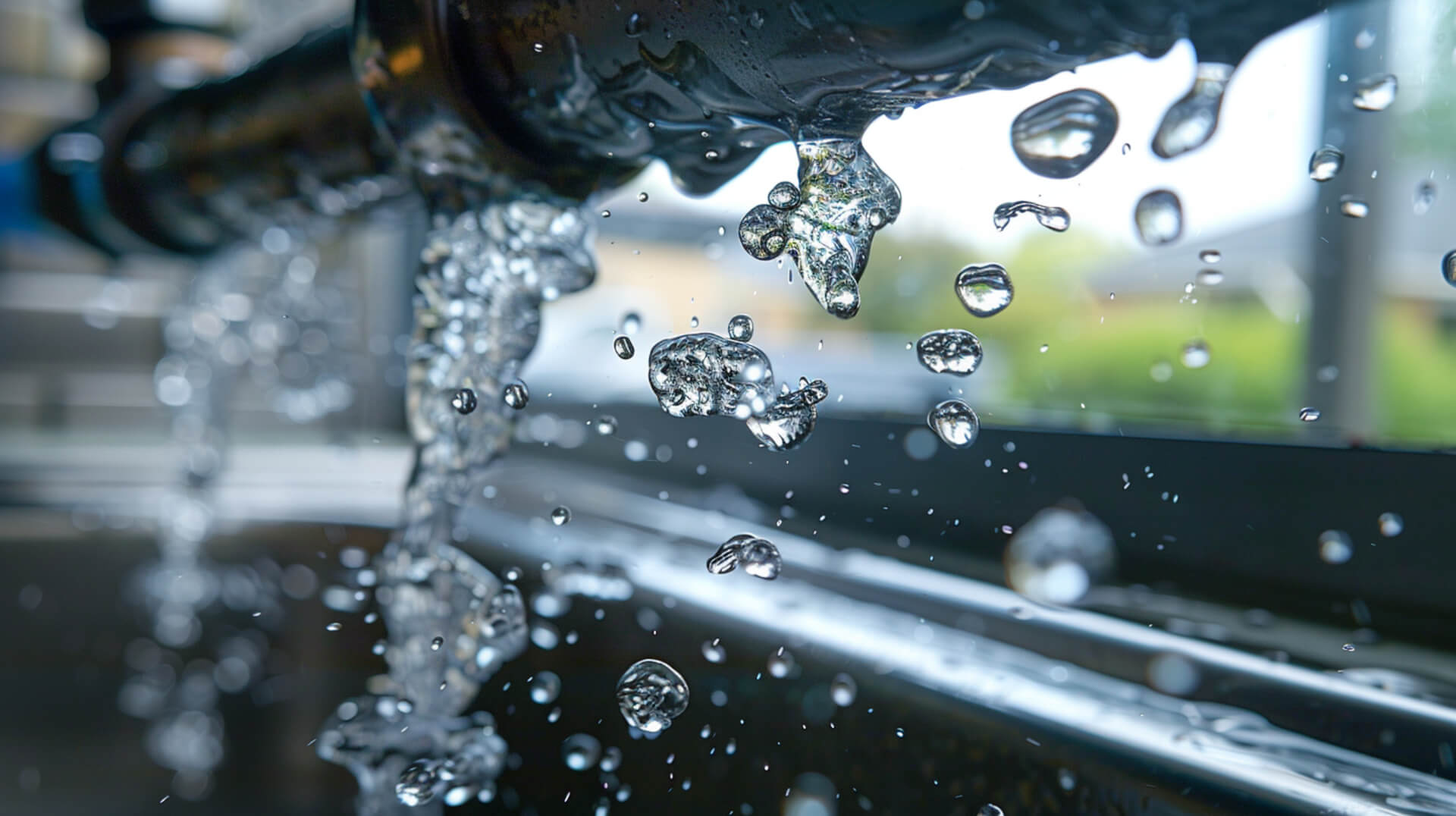
A property’s water line system is the unseen lifeline that ensures the smooth flow of water into homes and businesses. Maintaining this system is not just about convenience; it’s about preserving the integrity of the entire property. Regular maintenance is the key to longevity, helping to prevent the costly and disruptive consequences of water line failures.
What Constitutes a Healthy Water Line System?
A healthy water line system is one that delivers clean, clear water at a consistent pressure, free from leaks and contamination. It should be composed of materials that are resistant to corrosion and wear, conforming to current regulatory standards for safety and efficiency.
The Importance of Regular Maintenance
Regular maintenance of your water line can prevent small issues from escalating into major problems. It involves periodic inspections, cleaning, and timely repairs, which can extend the life of your water system and ensure it operates at peak efficiency.
Identifying Early Signs of Water Line Issues
You should be vigilant for signs of potential water line issues, such as unexpected spikes in water bills, changes in water quality or pressure, and any unusual sounds emanating from the plumbing. These can be early indicators of leaks, blockages, or other damage.
Origins of Water Line Problems
Most water line problems originate from environmental stress, material degradation, or installation errors. They can occur anywhere in your property’s plumbing system but are most common at joints, bends, and connections where pipes are most vulnerable to stress and movement.
Recognising the Early Signs of Water Line Damage

Water lines are the main artery of your property’s water supply system, and their integrity is crucial for maintaining a consistent and safe water flow. Recognising the early signs of damage can prevent more significant issues and costly repairs. Here are the initial indicators that may suggest your water line needs attention.
Sudden Increase in Water Bills
An unexpected rise in water bills often points to a hidden leak. If you notice such spikes without a corresponding increase in usage, it’s a clear sign that water is escaping from somewhere within your system.
Discoloration of Water
Water that appears brown, yellow, or reddish can indicate corrosion within pipes or the presence of sediment, signalling that your water line may be deteriorating and could require repair or replacement.
Reduced Water Pressure
A sudden or gradual loss of pressure could be due to a blockage or breach in the water line. This symptom warrants a closer look to determine the cause and necessary action.
Unusual Noises in the Plumbing
Sounds such as banging, whistling, or gurgling from the pipes can be alarming. These noises might be caused by air entering the system through cracks or the movement of water through compromised sections of piping.
By staying vigilant and responding to these early signs, you can address water line issues before they escalate. Regular inspections and prompt action upon noticing these indicators are key to maintaining a healthy water supply system.
Understanding Environmental Stress on Water Lines
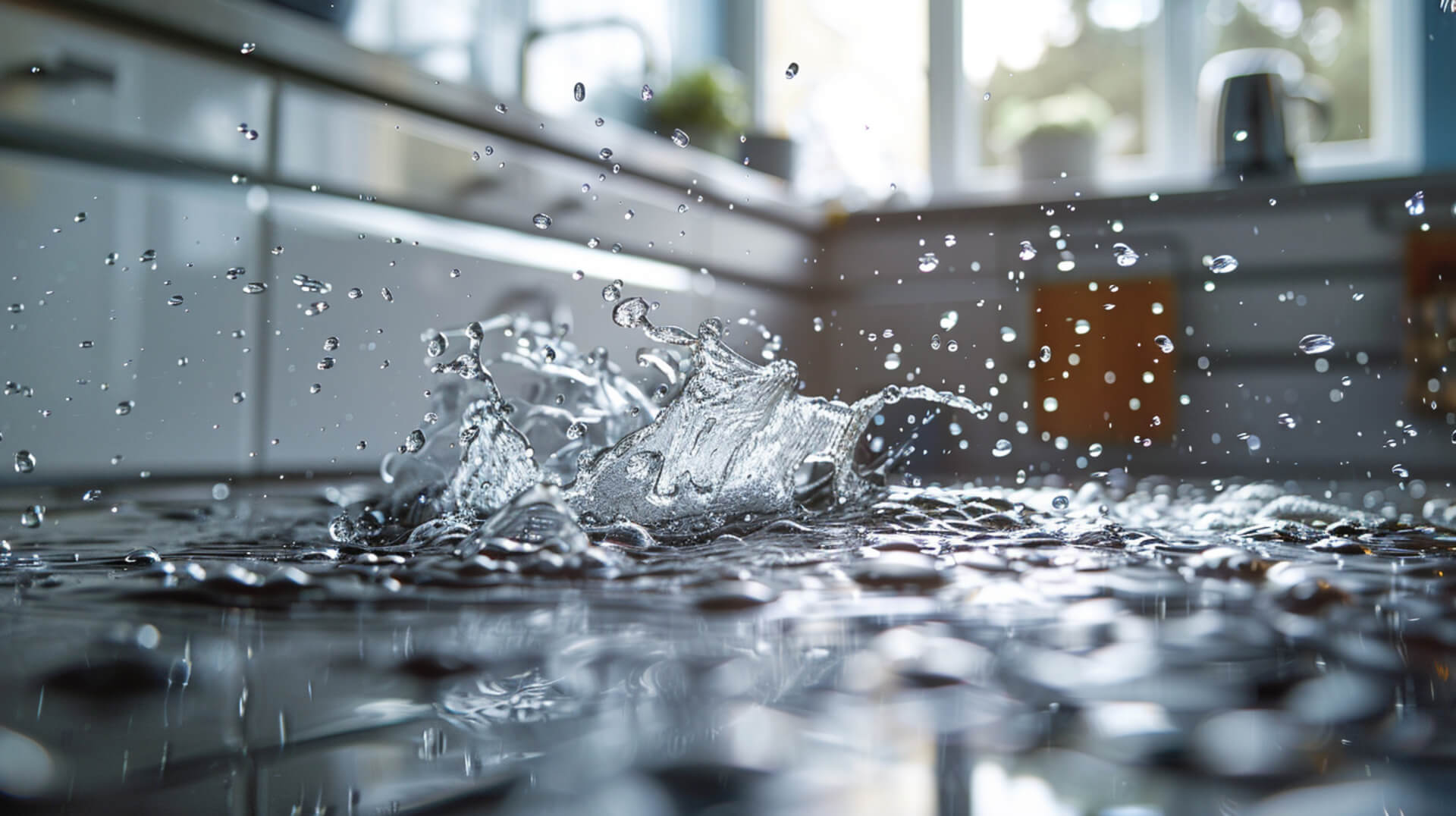
Environmental factors play a significant role in the health of water lines. Understanding how these external stresses impact the water supply system is essential for property owners, business owners, and facility managers.
Temperature Fluctuations and Water Line Damage
Temperature changes can cause water lines to expand and contract, potentially leading to cracks or breaks. Freezing temperatures are particularly harmful as water inside the pipes can freeze, expand, and cause the pipes to burst.
Invasive Roots and Water Line Integrity
Tree roots seeking moisture can invade and damage water lines. These roots can exert pressure on pipes, leading to cracks or blockages that disrupt water flow and compromise the system’s integrity.
Inevitability of Material Wear and Tear
Over time, water line materials naturally deteriorate due to constant water flow, chemical reactions, and environmental conditions. This wear and tear can result in leaks, reduced water quality, and the need for repairs or replacement.
Vulnerable Points in Water Lines
Water lines are most susceptible to environmental stress where they are exposed or lack proper insulation. Areas near tree lines, under foundations, or in unheated spaces are at higher risk for damage.
By recognising the impact of environmental stress, you can take proactive measures to protect your water lines, such as insulating pipes and monitoring areas prone to root invasion, to ensure a reliable water supply.
The Importance of Professional Diagnosis and Repair
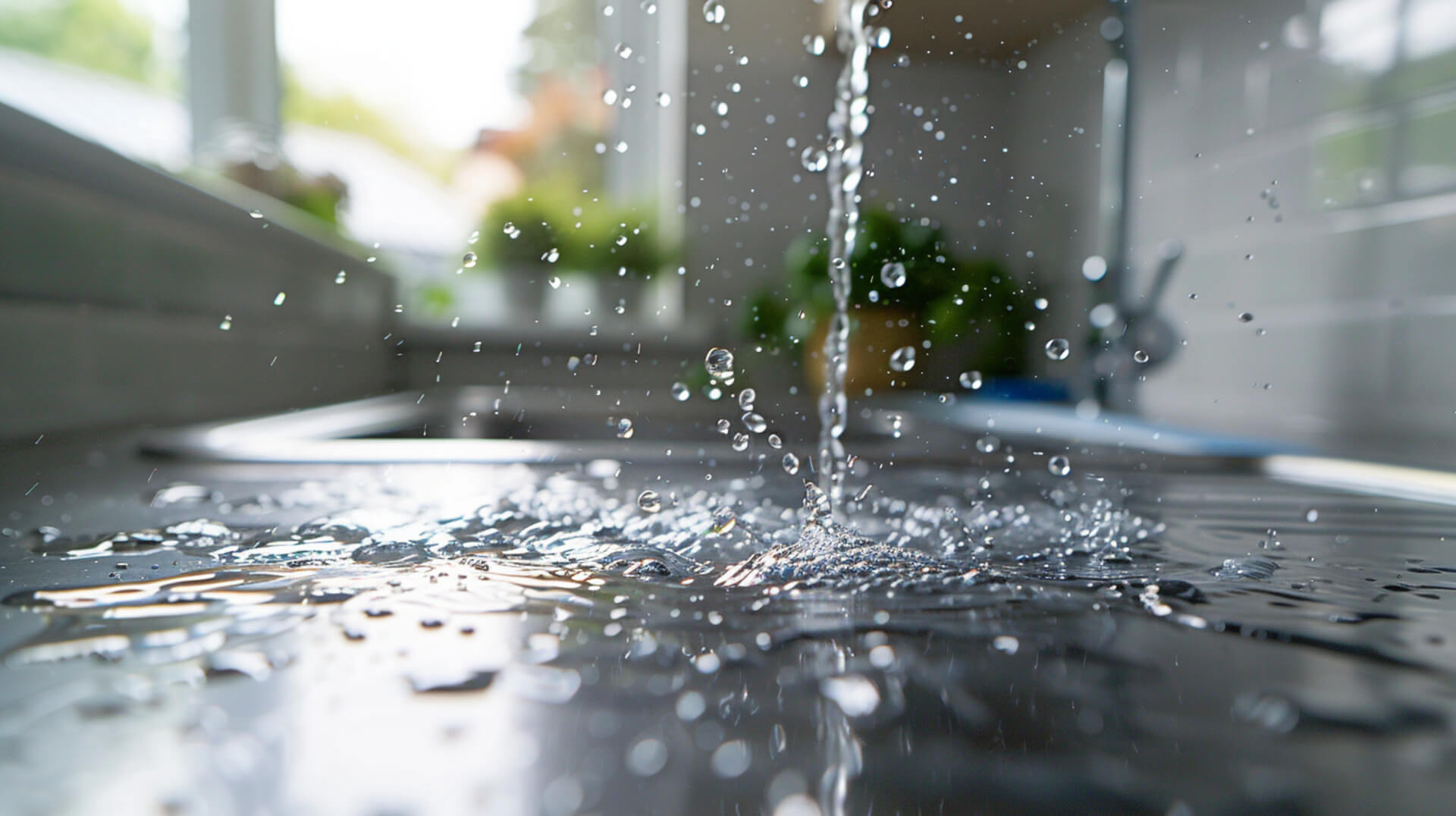
When it comes to maintaining the health of your property’s water lines, professional expertise is not just beneficialit’s often necessary. Understanding when and why to engage professional services can save you from future headaches and potential financial strain.
Opting for Professional Water Line Assessment
Professionals should be called for a water line assessment when you observe any of the early warning signs of damage, such as unexplained increases in water bills, discoloured water, or reduced pressure. Additionally, if your system is ageing or you’re considering a property purchase, a professional evaluation is prudent.
Advanced Tools Used in Professional Diagnosis
Professionals employ a variety of advanced tools for accurate diagnosis, including video pipe inspection cameras, pressure gauges, and acoustic sensors. These tools allow for a non-invasive and thorough examination of the water lines, pinpointing issues without the need for immediate excavation.
Determining Repair or Replacement Needs
Based on the assessment, professionals can determine the most cost-effective and long-lasting solution, whether it’s a repair or a full replacement. Their decision is informed by the extent of the damage, the age of the pipes, and the material’s resilience.
Expertise in Water Line Health
Expert plumbers bring a wealth of knowledge regarding regulatory compliance, material longevity, and the latest repair techniques. Their expertise is crucial in ensuring that any intervention on your water lines is performed correctly, adhering to safety standards, and guaranteeing the reliability of your water supply.
Material Considerations for Water Line Durability
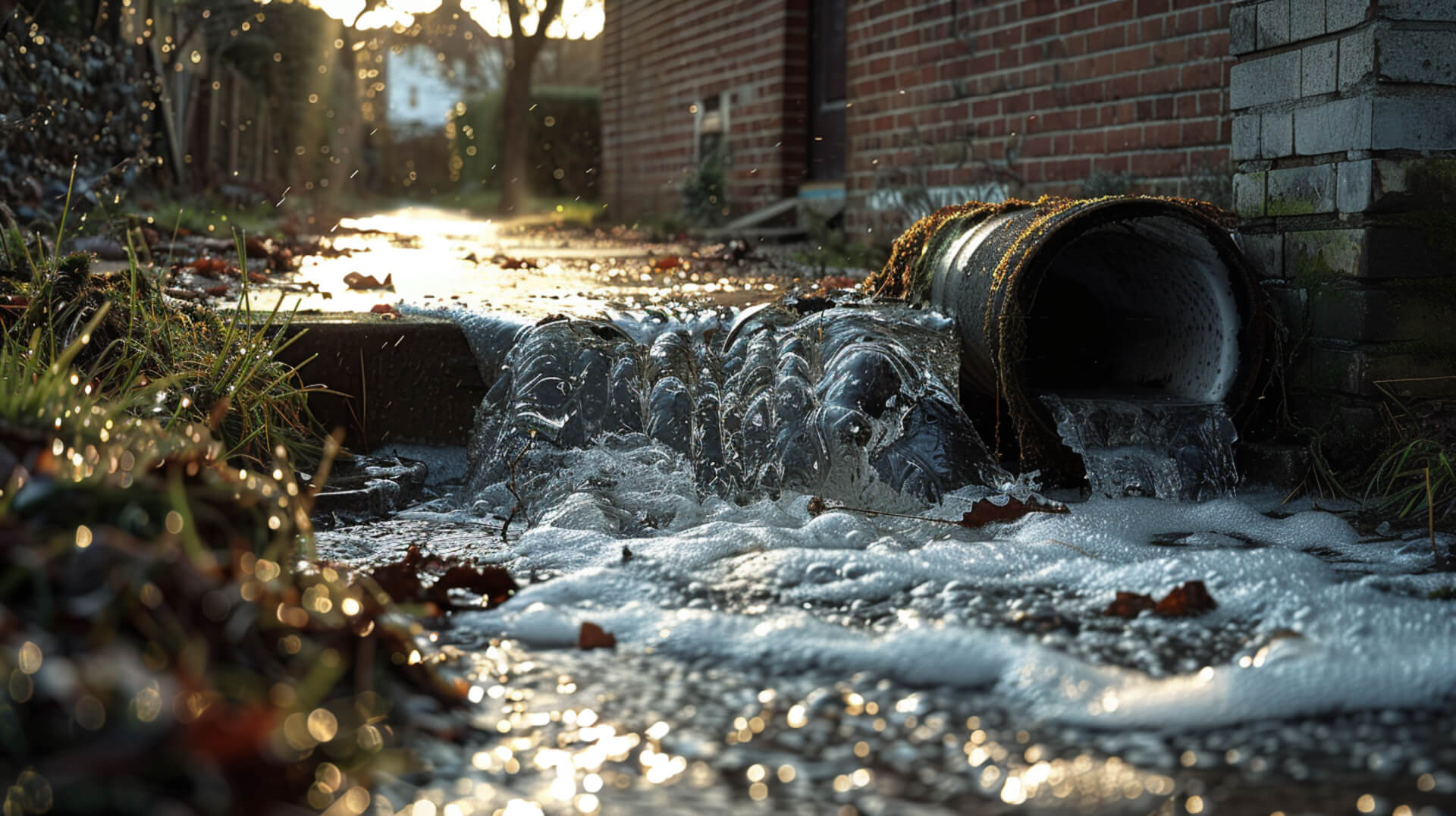
Selecting the right materials for water lines is critical for ensuring durability and compliance with health regulations. Property owners should be aware of the different materials available and their respective advantages.
Common Water Line Materials
The most commonly used materials for water lines include:
- Polyvinyl Chloride (PVC): Widely used due to its resistance to corrosion and affordability.
- Copper: Known for its longevity and reliability, but can be more expensive.
- Cross-Linked Polyethylene (PEX): Flexible and easy to instal, PEX is becoming a popular choice for both new installations and repairs.
Comparing Material Longevity
- PVC pipes typically last 25-40 years, making them a cost-effective option for many homeowners.
- Copper lines can exceed 50 years of service, offering a robust solution for long-term usage.
- PEX has a varied lifespan that can range up to 50 years, depending on usage patterns and environmental conditions.
Importance of Environmental Resistance
Resistance to environmental elements is crucial for preventing premature degradation. Materials must withstand temperature changes, chemical exposure, and physical stresses to maintain their integrity over time.
Regulatory Compliance and Health Considerations
- Regulatory standards often dictate the types of materials that can be used for water lines to ensure public safety.
- Health risks, such as those posed by lead pipes, have led to increased regulations and the phasing out of hazardous materials.
When choosing materials for water line construction or replacement, it is essential to consider these factors to ensure a safe, compliant, and durable water supply system.
Strategies for Preventive Water Line Maintenance

Preventive maintenance is a cornerstone of ensuring the longevity and reliability of your property’s water line system. Regular inspections can help you avoid the inconvenience and expense of major repairs or replacements.
Frequency of Water Line Inspections
It is recommended that water lines be inspected annually to detect any potential issues early on. However, if your property is located in an area with environmental stressors or if the plumbing system is older, more frequent checks may be warranted.
Focus Areas During Water Line Inspections
During inspections, particular attention should be paid to:
- Leak Detection: Look for signs of moisture or unexplained wet areas that could indicate leaks.
- Corrosion Assessment: Check for discoloration or flaking on pipes that may suggest corrosion.
- Pressure Testing: Ensure that water pressure is consistent and within expected ranges, as fluctuations can signal underlying problems.
Importance of Regular Checks
Consistent monitoring of your water line helps in early detection of issues, which can be addressed before they escalate into more significant problems. This proactive approach can extend the life of your water system and prevent costly disruptions.
Resources for Maintenance Practices
Property owners can learn more about effective maintenance practices from local plumbers, utility providers, and homeowner associations. These community resources often offer valuable insights and can assist in developing a tailored maintenance plan for your water line system.
Deciding Between Repair and Replacement
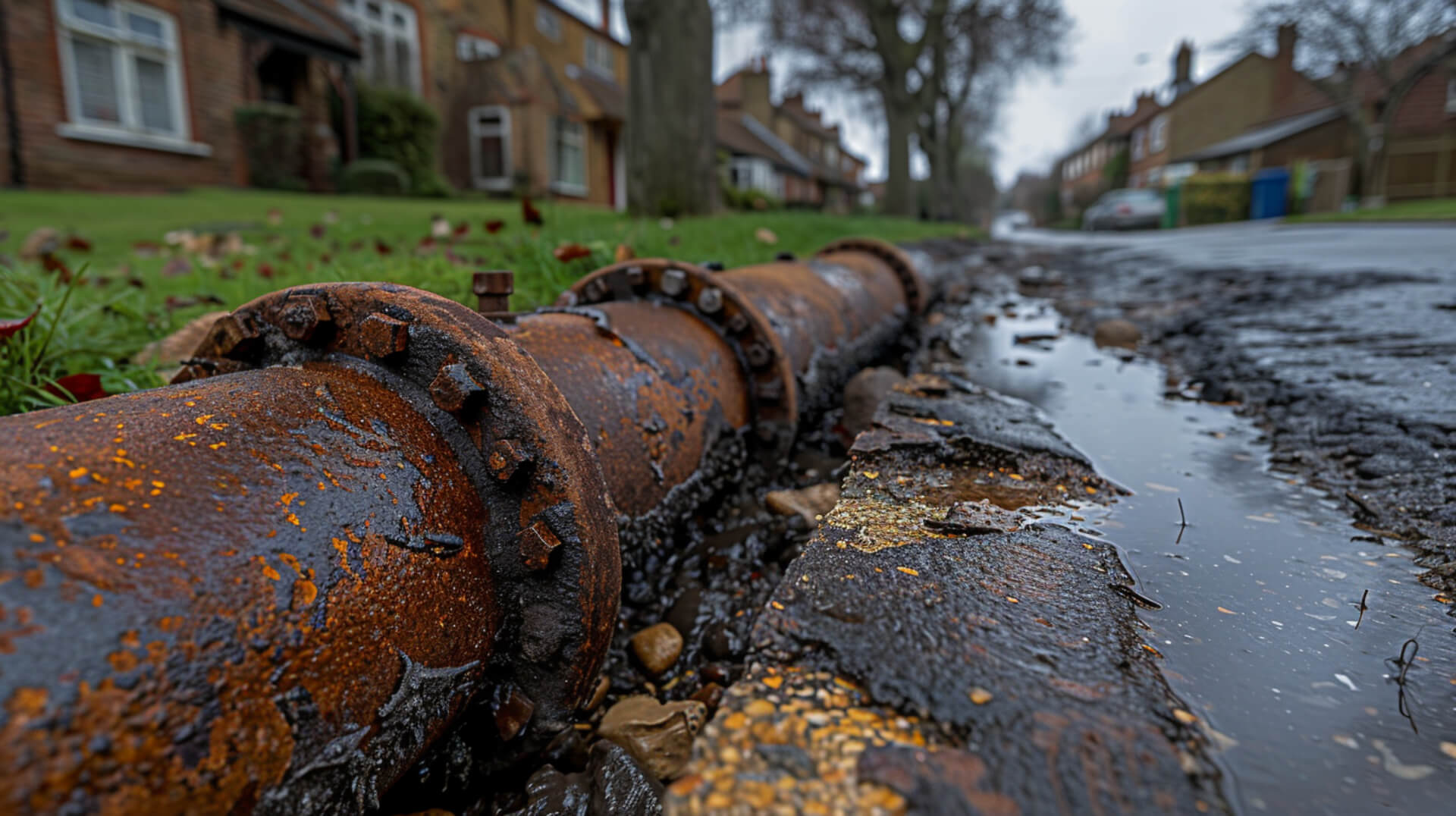
When faced with water line issues, the decision between repair and replacement hinges on several factors. Understanding these can guide you to a choice that ensures the safety, efficiency, and longevity of your water supply system.
Assessing the Age and Efficiency of the System
The age of your water line is a primary consideration. Pipes that have been in service for decades may be nearing the end of their useful life and could be more prone to frequent or severe breakdowns. Efficiency also plays a role; older systems may not only be more susceptible to damage but also less efficient in terms of water delivery and energy usage.
Regulatory Requirements and System Updates
Regulatory changes can necessitate updates to your water line system. Compliance with current standards is not only a legal requirement but also a matter of ensuring the health and safety of the water supply. If your system contains materials no longer up to code, such as lead, replacement becomes imperative.
Long-Term Benefits of Repair or Replacement
Consider the long-term implications of your decision. While repairs might offer a short-term solution, replacement could be more economical over time, reducing the likelihood of future issues and potentially increasing property value. Moreover, newer materials and technologies offer improved durability and can be more environmentally friendly.
Evaluating these factors will help you make an informed decision that balances immediate needs with future considerations, ensuring a reliable and compliant water line system for your property.
The Role of Inspections in Water Line Health
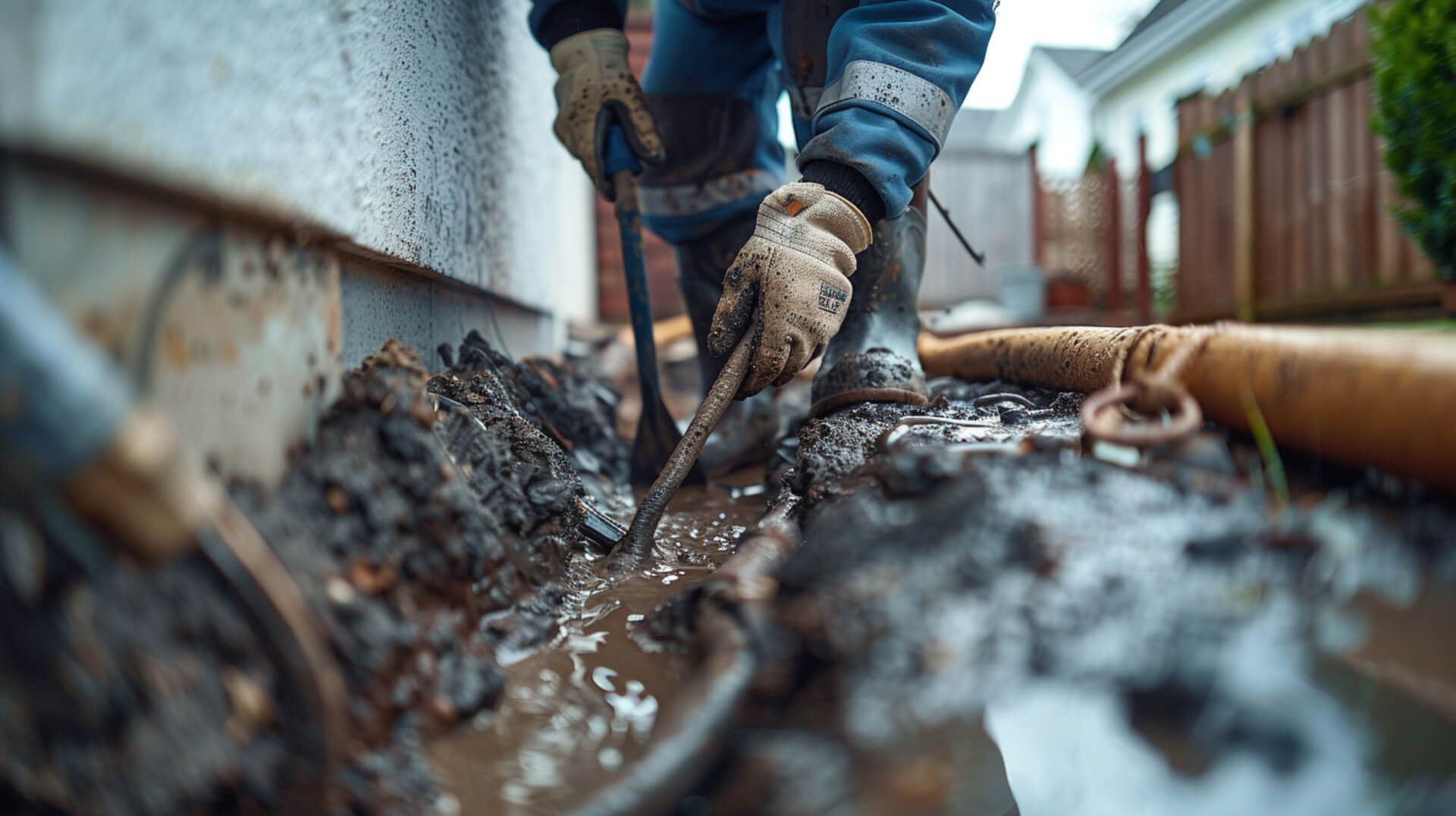
Regular inspections are a critical component in maintaining the health of your property’s water line system. These evaluations employ various techniques to ensure the system’s integrity and functionality.
Techniques in Leak Detection and Corrosion Assessment
Leak detection and corrosion assessment are vital to preserving water line health. Professionals use several methods:
- Acoustic Equipment: To detect leaks by identifying the sound of water escaping from pipes.
- Visual Inspection Tools: Such as cameras that can travel through the water line to spot corrosion or damage.
- Chemical Tests: To analyse water samples for signs of corrosion or other issues.
Importance of Pressure Testing
Pressure testing is an essential diagnostic tool. It involves:
- Measuring Water Pressure: To ensure it is within a normal range, which can indicate the system’s health.
- Identifying Variations: Sudden drops in pressure may reveal leaks or blockages.
Pre-Purchase Water Line Inspections
Before investing in a property, a thorough water line inspection can uncover hidden issues, allowing you to make an informed decision and potentially negotiate repair costs.
Recommended Timing for Inspections
Inspections should be conducted:
- Annually: As part of routine maintenance to catch issues early.
- After Significant Events: Such as extreme weather, which might compromise the water line system.
By adhering to a regular inspection schedule and responding to situational triggers, you can ensure the longevity and reliability of your water supply system.
Navigating DIY vs. Professional Water Line Services

When it comes to water line repairs, property owners must weigh the risks and benefits of DIY approaches against the expertise provided by professional services.
Assessing the Risks of DIY Water Line Repairs
DIY repairs can be tempting due to perceived cost savings. However, without the proper knowledge and tools, such attempts can lead to further damage, water contamination, or even legal issues if local regulations are not followed. It is crucial to assess the complexity of the issue and your own skill level before proceeding.
Expertise and Equipment Considerations
Professional plumbers possess the expertise and specialised equipment necessary for diagnosing and repairing water line problems efficiently. Their experience allows them to handle complex issues that might be beyond the scope of DIY repairs, such as deep underground leaks or system-wide pressure problems.
When to Choose Professional Services
For complex or extensive water line issues, professional services are often the safer choice. Professionals ensure repairs are completed correctly, adhere to building codes, and often provide warranties for their work. This can offer peace of mind and prevent costly mistakes.
Appropriate Situations for DIY Repairs
Minor repairs, such as replacing a section of exposed piping or fixing a simple leak under a sink, may be within the capabilities of a knowledgeable property owner. However, it is important to recognise when a problem requires professional intervention to ensure the integrity of your water supply system.
Understanding Municipal vs. Homeowner Responsibilities
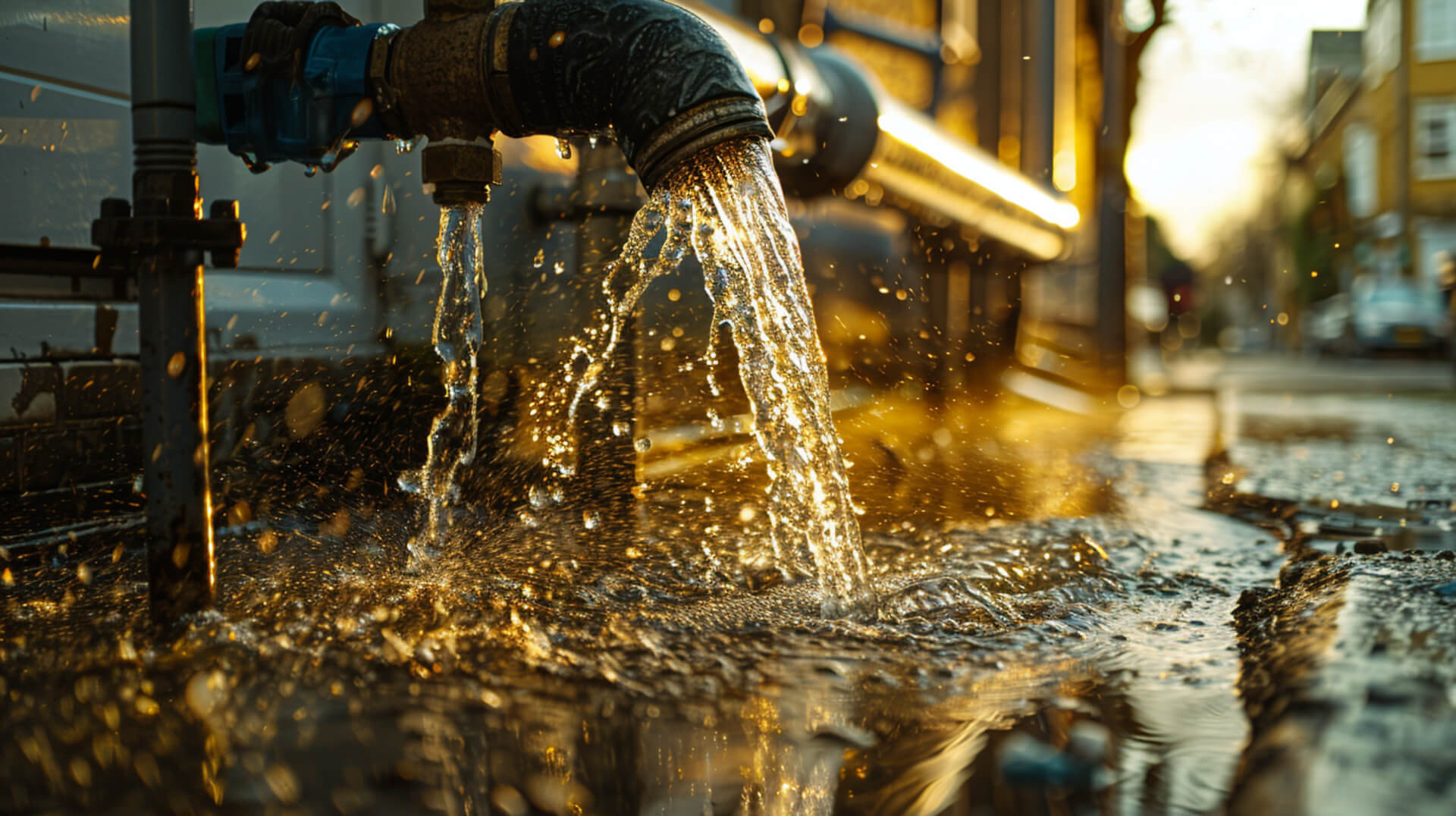
Navigating the division of water line responsibilities between municipalities and property owners is essential for effective maintenance and timely repairs.
Municipal Obligations for Water Line Maintenance
Typically, municipalities are responsible for the water line up to the property boundary. This includes the main water supply line that runs parallel to the street and any lateral lines extending to the property’s edge. Municipal services are tasked with ensuring the integrity and functionality of this portion of the water supply system.
Determining Homeowner Responsibilities
As a property owner, your responsibilities generally begin where the municipal line ends, which is often at the water metre or property boundary. This includes all the piping that runs from the boundary into your home or business. It is your duty to maintain and repair this section of the water line.
Importance of Clear Communication
Clear communication with local water services is crucial. It ensures that you understand your responsibilities and can coordinate effectively in the event of a water line issue. In some cases, municipalities may offer services or support for water line issues on private property, so staying informed about local policies is beneficial.
By understanding where responsibilities lie, property owners can better manage their water line maintenance and address any issues that arise with clarity and confidence.
Preparing for Water Line Emergencies

In the event of a water line emergency, being prepared can significantly mitigate damage and expedite repairs. Property owners should have a clear action plan and understand the steps to take when faced with water line failures.
Essential Elements of a Water Line Emergency Action Plan
An effective emergency action plan should include:
- Immediate Steps: Know how to shut off the water supply to prevent further damage.
- Professional Contacts: Maintain a list of reliable plumbers or water line repair services.
- Insurance Information: Keep your insurance policy details accessible for quick reference.
Responding to Sudden Water Line Failures
When a water line failure occurs, quick action is crucial. Shut off the main water valve immediately to stop the flow of water, assess the situation to determine if it’s a localised issue or a broader system failure, and contact a professional if the problem is beyond basic troubleshooting.
Importance of Professional Contact Information
Having professional contact information readily available ensures that you can quickly reach out for assistance, reducing the time it takes to begin repairs and restore normal water service.
Insurance Communication in Water Line Issues
Contact your insurance provider as soon as possible to report any water line issues. Early communication can facilitate the claims process and help you understand your coverage scope, especially in distinguishing between emergency situations and gradual wear and tear.
Ensuring Water Line Integrity Through Maintenance
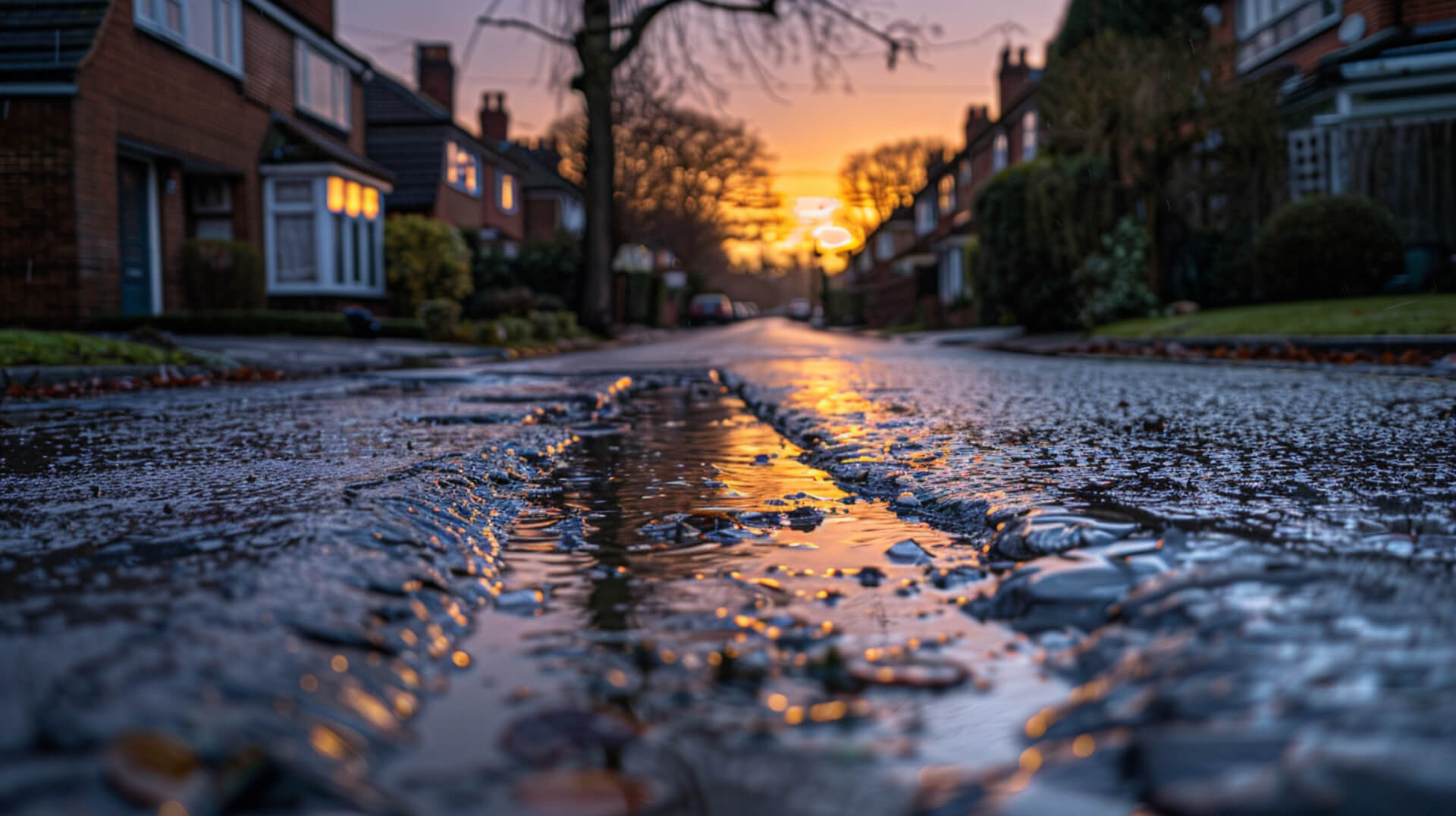
Regular maintenance and timely repairs are pivotal in maintaining the health of your water line system. By understanding the intricacies of your property’s water supply and being proactive, you can ensure its longevity and functionality.
Benefits of Regular Water Line Maintenance
- Prevents Major Repairs: Routine checks can identify and resolve minor issues before they escalate.
- Safeguards Water Quality: Regular maintenance ensures that the water supply remains clean and safe for use.
- Extends System Lifespan: Consistent care can prolong the life of your water line, delaying the need for costly replacements.
Understanding Your Water Line System
A solid grasp of your water line system allows you to:
- Identify Issues Quickly: Recognising the early signs of damage enables faster response to prevent further deterioration.
- Make Informed Decisions: Knowledge of your system’s materials and layout informs your choices regarding repairs and upgrades.
Long-Term Advantages of Diligent Water Line Care
Diligent care of your water line system offers several long-term benefits:
- Cost Savings: Minimising the need for emergency repairs reduces overall expenses.
- Property Value: A well-maintained water line system can enhance your property’s value.
- Environmental Impact: Efficient systems contribute to water conservation and reduce the likelihood of leaks that can cause soil and water contamination.
Seeking Further Information and Support
For additional information and support, property owners can consult:
- Local Plumbers: For expert advice and service.
- Utility Providers: For guidance on maintenance and emergency preparedness.
- Homeowner Associations: For shared knowledge and community resources.
By staying informed and engaging with these resources, you can effectively manage your water line system and contribute to a sustainable future.

